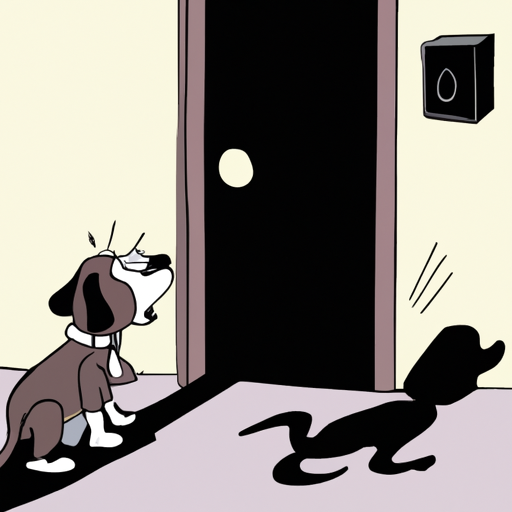“`markdown
Why Do Dogs Bark When Someone is at the Door?
Understanding Your Dog’s Behavior
You are a caregiver, always looking out for ways to understand and care better for your furry friends. It’s therefore natural that you’re puzzled by the behavior of your dog when someone approaches the door. What is it about the door that triggers such a reaction?
Dogs bark for various reasons – fear, excitement, or boredom. However, barking at the door typically stems from territorial instincts or alertness. Dogs, like their wolf ancestors, are wired to protect their pack, their territory. You, their beloved caregiver, are their pack.
Decoding the Bark
Barks are not just noise. They are your dog’s way of communicating. By understanding the types of barks, you can better understand what your dog is trying to tell you.
-
Alarm Barking: This is usually a series of sharp, short barks. It’s their way of telling you, “Hey, something’s up!”
-
Territorial Barking: This bark is usually deeper and more prolonged. It’s your dog’s way of saying, “This is my space, back off!”
-
Fearful Barking: Fear barks are often accompanied by body language like cowering or tail tucking. It’s as if they’re saying, “I’m scared, protect me!”
Training Your Dog
Training your dog not to bark at the door requires patience, consistency, and positive reinforcement.
- Start by teaching your dog the “quiet” command. Use treats and praise to reward them when they stop barking.
- Gradually introduce distractions, like a knock on the door. Reward them for remaining quiet.
- Eventually, your dog should associate the door sound with being quiet, rather than barking.
Effect of Training on Dog’s Behavior
| Before Training | After Training |
|---|---|
| Excessive barking | Reduced barking |
| Agitation | Calmness |
| Fear | Confidence |
Picking the Right Training Tools
From clickers to treats, the right tools can make all the difference in your training journey.
- Clickers: These provide an immediate response, helping your dog associate the sound with the desired behavior.
- Treats: Treats are a great incentive. Always have them on hand during training sessions.
- Leashes: Leashes can help you manage your dog’s movement during training sessions.
FAQ
Q: Why does my dog bark at some people and not others?
A: Dogs may sense something unfamiliar or threatening about certain people, leading to barking.
Q: Can I stop my dog from barking at the door completely?
A: It’s natural for dogs to bark, and it’s their way of communicating. Training should aim to control excessive barking, not stop it completely.
Q: How long will it take to train my dog not to bark at the door?
A: Every dog is different. Patience and consistency are key in any training process.
“`



